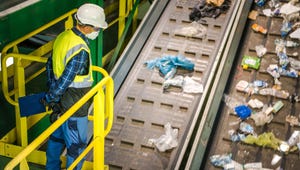Liquid Light (Monmouth Junction, NJ), a company that develops and licenses process technology to convert CO2 into mainstream chemicals, has signed a technology development agreement with The Coca-Cola Company (Atlanta, GA). Focused on accelerating the development of Liquid Light’s CO2 to mono-ethylene glycol (MEG) conversion technology, the agreement is targeted at further augmenting Coca-Cola’s PlantBottle Packaging Program.
July 23, 2015
Liquid Light (Monmouth Junction, NJ), a company that develops and licenses process technology to convert CO2 into mainstream chemicals, has signed a technology development agreement with The Coca-Cola Company (Atlanta, GA). Focused on accelerating the development of Liquid Light’s CO2 to mono-ethylene glycol (MEG) conversion technology, the agreement is targeted at further augmenting Coca-Cola’s PlantBottle Packaging Program. While PlantBottles are currently already being produced from a PET resin containing bio-based MEG, Liquid Light’s technology—in which MEG is made from carbon dioxide—enables more efficient use of plant material. Additional details of the agreement are not being disclosed at this time. The core technology is centered on catalytic electro-chemistry. By adjusting the catalyst design, various chemicals can be produced. Liquid Light’s first process is for production of ethylene glycol from CO2, offering a shorter, lower cost value chain to bio PET compared to, for example, the sugar cane-based-ethanol-to-MEG route used to produce the bio-MEG in PlantBottles today.
The core technology is centered on catalytic electro-chemistry. By adjusting the catalyst design, various chemicals can be produced. Liquid Light’s first process is for production of ethylene glycol from CO2, offering a shorter, lower cost value chain to bio PET compared to, for example, the sugar cane-based-ethanol-to-MEG route used to produce the bio-MEG in PlantBottles today.
The technology, which is backed by more than 100 patents and applications, has the potential to reduce both the environmental footprint and the cost of producing MEG. Liquid Light envisions making bio-MEG at, for example, bio-ethanol production facilities from the CO2 byproduct that results from converting plant material into ethanol. Converting the CO2 into ethylene glycol would then take place in “bolt-on” MEG facilities, thus diversifying the product mix at existing facilities.
According to Liquid Light’s presentation at the Bio World Congress in Montreal, CO2 is the lowest cost feedstock for MEG. It costs $50/ton feedstock to make a $1,200/t product, which is much lower than what is achievable with conventional feedstocks, such as ethane or oil. Moreover, the technology enables a potential liability to be turned into an asset, promising chemical producers lower costs and greater sustainability and firms with waste CO2, like ethanol producers to turn that waste into revenue. In addition, brands, like Coca-Cola, that use large amounts of plastics in their packaging can offer a more sustainably packaged product.
About the Author(s)
You May Also Like


